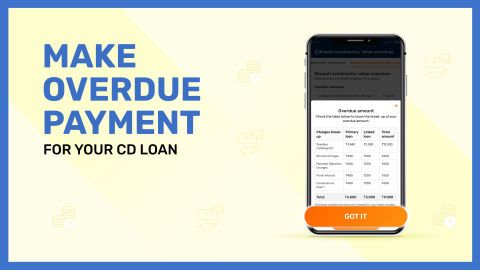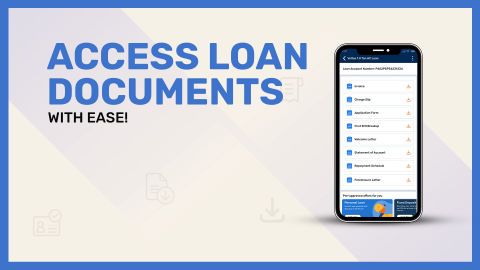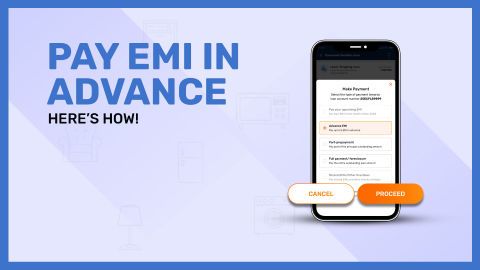Doctor loans are a unique financial product designed to meet the specific needs of medical professionals, offering them easier access to funds with favourable terms. However, just like any other loan, managing the repayment process is crucial to avoid unnecessary charges. One such charge that often goes unnoticed is the ECs return charge. This fee is levied when an ECS (Electronic Clearing Service) payment fails due to reasons such as insufficient funds or incorrect account details. While doctor loans typically offer flexible repayment options, understanding the implications of ECS returns is vital. These charges can add up quickly, affecting your overall financial plan. This article will guide you through how ECS return charges work, their impact on your credit score, and how to avoid them. By staying informed and managing your payments carefully, you can ensure that your doctor loan remains a stress-free financial tool.
What causes ECS returns in doctor loan?
ECS (Electronic Clearing Service) is a convenient and automated way to repay loans, including doctor loans, directly from your bank account. However, there are times when ECS payments fail, resulting in an ECS return charge. Understanding the common causes of ECS returns can help you avoid these fees and keep your financial obligations on track.
Insufficient funds in the account
The most common reason for an ECS return is insufficient funds in the borrower’s bank account. If the account balance is lower than the ECS payment amount, the transaction cannot be processed, leading to a failed payment. It’s essential to ensure that sufficient funds are available before the due date to avoid such returns.
Incorrect account details
Any mistake in the bank account details, such as an incorrect account number or IFSC code, can lead to an ECS failure. When setting up your ECS mandate, double-check the provided information to ensure accuracy. Even a small error can cause delays or returns in the payment process.
Closed or dormant account
If the account linked to the ECS payment is closed or has been dormant for an extended period, the bank will not process the ECS transaction. This scenario can occur if the account holder forgets to update their loan provider about switching accounts or if the account is not actively used.
Insufficient balance to cover multiple ECS payments
In cases where multiple ECS payments are scheduled around the same time, insufficient funds to cover all the payments can result in one or more of them being returned. For instance, if you have other automatic payments scheduled and there isn’t enough money to cover all, your doctor loan ECS might fail.
Technical glitches or bank-specific issues
Sometimes, technical issues either with your bank or the lender’s system can result in ECS returns. These could include connectivity problems, processing delays, or issues with the system that are outside of your control. In these cases, contacting your bank and lender can help resolve the issue quickly.
Expired mandate
ECS payments rely on an active mandate. If the ECS mandate expires or is revoked by the borrower or the bank, the payment won’t go through. Always ensure that your mandate is valid and hasn’t been cancelled to avoid payment issues.
By being proactive and managing your account, you can easily avoid ECS returns, ensuring that your doctor loan repayments go smoothly without extra charges.
How doctor loan ECS return charges are calculated?
ECS return charges are a common concern for borrowers who prefer automated payments for their doctor loans. When an ECS transaction fails, lenders usually impose a fee to cover the administrative costs of the return. These charges are calculated based on the specific policies of the lender and the bank. While the amount may vary, here’s how it’s typically calculated:
Flat fee:
Most lenders charge a flat fee for each ECS return. This fee is generally a small amount but can add up if there are multiple returns. On average, the charge could range from ₹300 to ₹1,000 per failed ECS transaction.
Penalty per return:
In some cases, the charge can be a penalty based on the loan amount or the EMI. For instance, if the ECS return happens due to insufficient funds, the lender may charge a percentage of the EMI amount or a fixed fee in addition to the actual ECS return cost.
Additional bank fees:
The bank may also levy its own penalty charges for returned payments. These charges can vary depending on the bank’s policies and the nature of the return. Therefore, borrowers may face dual charges — one from the lender and another from the bank.
Cumulative charges:
If the ECS return is not rectified in a timely manner, the lender may charge additional fees for subsequent returns or delayed payments. This can escalate the overall cost of the loan.
Common reasons for ECS returns
Understanding the reasons behind ECS returns is crucial for avoiding these charges. Below are some of the most common causes:
Insufficient funds:
The primary reason for ECS return is a lack of sufficient funds in the borrower’s account. If there is not enough money to cover the ECS transaction on the due date, the payment will be rejected.
Incorrect bank details:
Any mistake in the provided bank details, such as the wrong account number or IFSC code, can cause the ECS return.
Account issues (closed/dormant):
If the linked account is closed or dormant, the ECS transaction cannot be processed, leading to a failed payment.
Expired ECS mandate:
ECS payments rely on an active mandate. If the mandate expires or is cancelled, the payment will not be authorised, resulting in an ECS return.
Technical problems:
Sometimes, technical glitches with the bank’s systems or the lender’s processing systems can cause a failed ECS payment.
How to avoid ECS return charges on your doctor loan?
To avoid incurring ECS return charges, here are some practical tips:
Ensure sufficient funds in your account:
Always ensure that your bank account has enough funds to cover the ECS payment on the due date. Set a reminder or schedule a monthly transfer to maintain the necessary balance.
Double-check account details:
Verify that your bank details, including account numbers and IFSC code, are correctly provided to the lender. Any discrepancies could lead to ECS failures.
Keep your account active:
Regularly monitor the account linked to your ECS. If you change banks or accounts, update your loan provider with the new details to avoid issues with dormant or closed accounts.
Renew ECS mandates:
Ensure that your ECS mandate remains active and does not expire. If you’re unsure about the validity of the mandate, contact your lender to confirm.
Monitor scheduled payments:
If you have multiple ECS payments scheduled for the same time, ensure that you have enough funds to cover them all. Prioritise important payments and avoid overloading your account.
Set up alerts:
Set up SMS or email alerts with your bank to track your account balance. This will help you stay informed and avoid any last-minute surprises regarding insufficient funds.
Review loan repayment terms:
Stay informed about the repayment terms of your doctor loan. Knowing the due dates and amounts can help you manage your payments better and avoid ECS returns.
By proactively managing your payments and staying aware of your account status, you can ensure timely loan repayments and avoid costly ECS return charges.
How to resolve ECS returns on your doctor loan?
ECS returns can be a stressful situation, especially if you’re trying to keep your doctor loan repayments on track. Fortunately, resolving ECS returns is possible, and it typically involves a few steps to identify the issue and take corrective action. Below are some essential pointers to help you resolve ECS returns efficiently:
Contact your bank for solutions
Inquire about the reason for return:
If your ECS payment fails, the first step is to contact your bank to find out the specific reason behind the return. The bank will provide you with a detailed explanation, whether it’s due to insufficient funds, incorrect account details, or another issue.
Request for reprocessing:
If the issue was a minor one, such as a technical error or incorrect processing, you can request the bank to reprocess the ECS transaction. This is often an option if the error was on their end, and reprocessing may help avoid additional charges.
Confirm account status:
If the problem is related to account issues (e.g., closed or dormant account), check with the bank to ensure the account is active and capable of processing ECS payments. Ask them to verify whether there are any restrictions on the account that might prevent payments from being processed.
Check for bank-specific fees:
Banks may impose their own return fees in addition to those charged by the lender. Ask your bank if there are any fees associated with the ECS return, and if so, request clarification on how to avoid them in the future.
Correcting insufficient funds or account details
Ensure sufficient funds:
If the ECS return was due to insufficient funds, it’s crucial to ensure that there are enough funds in your account moving forward. You can either transfer money to the account before the ECS payment date or set up an automatic transfer to maintain a sufficient balance. Regular monitoring of your account is essential to avoid this issue.
Update your bank account details:
If the ECS return was caused by incorrect bank details, contact your loan provider immediately to update your bank account information. Double-check the account number, IFSC code, and other details to ensure they are correct.
Re-authorise the ECS mandate:
In some cases, the ECS return might occur because of an expired or cancelled ECS mandate. If this is the case, you’ll need to re-authorise or renew the mandate with your loan provider. This will ensure that the payments continue without interruption.
Resolve issues with a new account:
If your bank account was closed or inactive, consider linking a new account to the ECS mandate. Update your loan provider with the new account details to prevent further issues with the ECS payments.
Make a one-time payment:
While resolving the ECS issues, it’s a good idea to make a one-time manual payment for the missed EMI. This ensures that your loan repayment schedule is not affected and prevents any negative impact on your credit score.
By addressing the underlying causes of ECS returns—whether they are due to insufficient funds, incorrect details, or other technical issues—you can ensure your doctor loan repayments proceed smoothly and avoid incurring additional charges.
Legal implications of ECS return charges
ECS return charges are not just an inconvenience; they can also have legal and financial consequences. It's important for borrowers, especially those with doctor loans, to understand the potential implications of repeated ECS returns. Below are the key legal concerns associated with ECS return charges:
Impact on credit score
Negative effect on credit score:
Repeated ECS returns can damage your credit score, as missed payments are reported to credit bureaus. A low credit score can make it harder to secure loans in the future or lead to higher interest rates. It’s essential to ensure timely repayments to protect your creditworthiness.
Legal action for loan default:
If ECS returns become frequent and there is no effort to resolve them, lenders may classify the loan as defaulted. In such cases, they may initiate legal proceedings, including recovery actions or court cases, to recover the outstanding debt. This could further harm your financial standing.
Potential penalties and charges
Additional financial penalties:
Repeated ECS returns often lead to additional charges. While these may initially be administrative fees, a series of missed payments can escalate to penalties, higher interest rates, or other fees levied by the lender. These costs can make it more difficult to repay your loan, further exacerbating your financial troubles.
Lender’s right to revoke the loan:
In some cases, lenders reserve the right to cancel the loan agreement if there are consistent issues with ECS payments. This could lead to the full loan amount being demanded immediately, putting further strain on the borrower’s finances.
Legal ramifications of ECS returns
Impact on legal agreements:
Failing to meet ECS payment obligations could be viewed as a violation of the terms in your loan agreement. Lenders may initiate legal steps if they believe the borrower is breaching the terms of the contract. In such cases, they might file suits in civil courts for loan recovery, which could lead to wage garnishment or seizure of assets.
Court-ordered recovery actions:
If ECS returns are not rectified and the loan defaults, the lender can pursue court-ordered recovery actions. This could include proceedings such as property liens or garnishment of wages. These legal actions could significantly impact a borrower’s financial freedom and reputation.
How to prevent legal issues from ECS returns?
Use a reliable ECS payment mode: One way to avoid these issues is by setting up an ECS payment mode that works smoothly. Ensuring that the ECS mandate is linked to a well-maintained and active bank account will minimise the risk of payment failures and their legal consequences.
Ensure timely repayment: To prevent legal complications, always ensure that you make timely payments. If you’re facing difficulties, consider using Bajaj Finance quick payment options to clear your dues quickly. Keeping your loan repayments current is key to avoiding legal escalation.
By understanding the legal implications of ECS return charges, you can take proactive steps to avoid financial and legal difficulties. Always ensure that you have sufficient funds, accurate bank details, and a smooth ECS payment setup to maintain a healthy relationship with your lender and protect your financial future.
Conclusion
In conclusion, while ECS return charges may seem like a minor issue, they can lead to significant financial and legal consequences if not addressed promptly. By understanding the common causes, how they are calculated, and the potential implications, you can take proactive steps to avoid such charges. Ensuring sufficient funds, accurate account details, and timely loan repayments are essential for smooth ECS transactions. With proper management, you can maintain a positive financial record and avoid the legal complications associated with repeated ECS returns. Always stay informed and take quick action to resolve any issues that arise.




